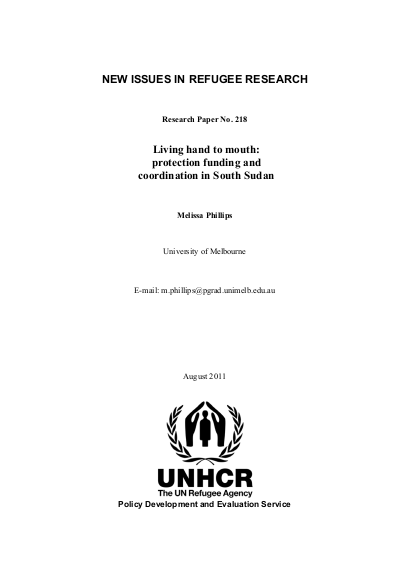
This paper explores the inter-connections between funding and coordination for the protection sector, employing a case study approach from South Sudan, where the author worked between 2005 and 2009. After describing the coordination arrangements in place under humanitarian reform initiatives, I contrast the rhetoric of protection coordination policies against my experience of how protection coordination worked in practice; recognising the added complexity of working in an integrated Department of Peace Keeping Operations (DPKO) mission. I will then detail the various mechanisms available to fund protection projects in the case of Sudan where the cluster system has been implemented at country level.